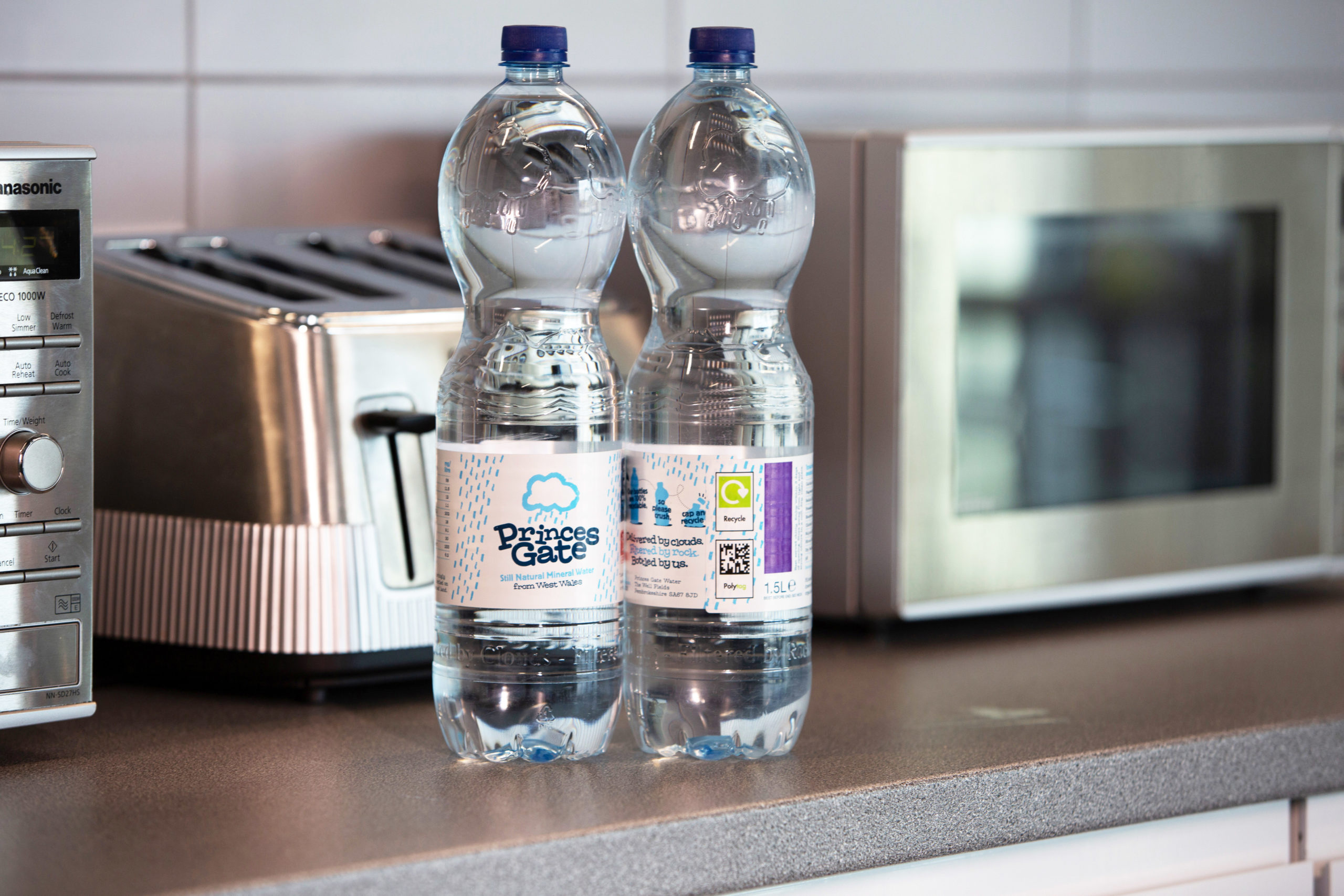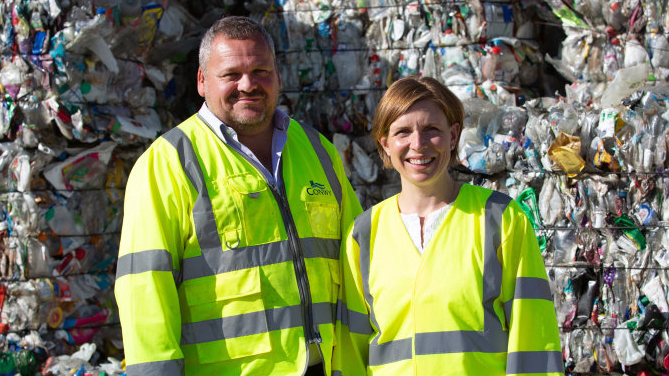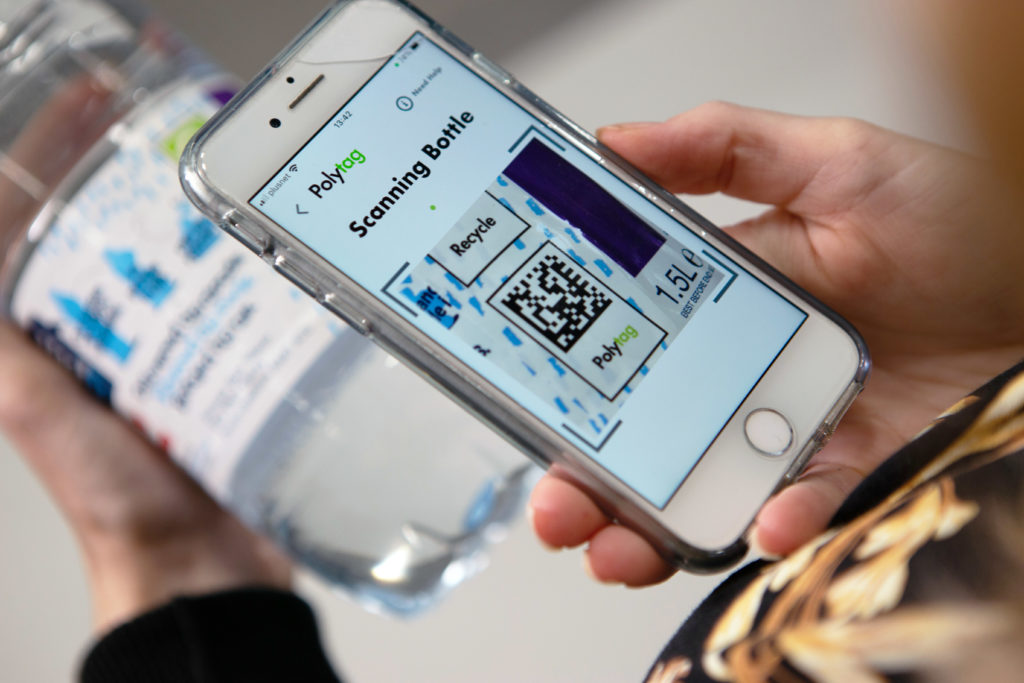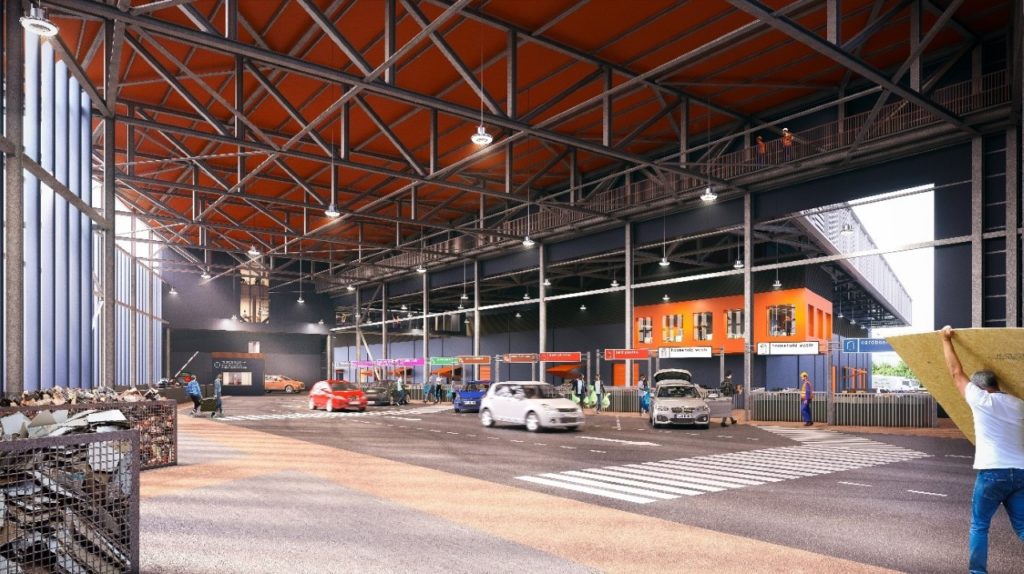The joint initiative was run by technology supplier Polytag, the Welsh Government, Conwy county borough council, Ecosurety and Wrap Cymru.
Residents in Colwyn Heights, Conwy, were asked to scan QR codes on specially provided bottles before placing them in their usual kerbside recycling containers. To do this they used a free app downloaded on to their mobile phones. The bottles were scanned again upon collection by the council’s household waste team (see letsrecycle.com story).
Polytag says 97% of the 271 registered households returned at least one bottle during the four-week trial.
Alice Rackley, Polytag’s recently appointed CEO, told letsrecycle.com: “We are very pleased. We managed to demonstrate that our technology worked. We proved that households will recycle as part of a deposit return scheme if it’s convenient for them.
“We were also really pleased with the council’s response, because they are delighted that, through a digital deposit return scheme, they can keep high-value plastics in their collections.”
Pilot
The pilot saw registered households receive six 1.5l Princes Gate mineral water bottles, each tagged with a QR code, between 7 June and 15 July.

Householders received a digital token worth 20p for each bottle collected and scanned by both residents and the council.
During the four weeks, nine in 10 (90%) registered households scanned four or more bottles, Polytag says, with 193 (73%) scanning all six.
Polytag says 1,268 out of 1,430 (89%) scanned bottles were recovered from the kerbside by the collections team.
And, only three households (1%) requested technical support across the four weeks.
Digital DRS
England, Wales and Northern Ireland plan to introduce a DRS in late 2024. While the plans have been welcomed by the public, some in the industry are more sceptical. Ms Rackley told letsrecycle.com that a digital DRS rather than a more conventional model was the solution.

She said: “When it comes to positions on kerbside versus traditional DRS, it’s easy to look at what’s happening abroad and in Europe and say, ‘we’re comfortable with that because we know it works and we know it’s been delivered successfully’.
“Our position at Polytag is that digital technology can really accelerate us towards achieving a circular economy for plastic packaging. Although it’s relatively new, it’s something that absolutely should be supported because of the advantages.
“I think it’s about trying to demonstrate what can be done, and we have done that with this pilot very successfully. That should give people reassurance.”
‘Encouraging’
Ms Rackley also praised the Welsh Government for its “support” during the pilot.
By using these new technologies, we are one step closer to creating a truly circular economy– Lee Waters, Wales’s deputy minister for climate change
Commenting on the project in a statement, Lee Waters, Wales’s deputy minister for climate change, said: “This has been a really encouraging pilot project that we will learn from as we work towards rooting out waste and reusing as much as we can as part of our efforts to tackle climate change.
“Digital deposit return schemes, like this one deployed in Colwyn Heights, help local authorities, brands and regulators to monitor recycling rates, so they can better understand the habits of households. By using these new technologies, we are one step closer to creating a truly circular economy.”
2024
The government plans to introduce a DRS in England, Wales and Northern Ireland in late 2024 “at the earliest”. A consultation on the DRS ran earlier this year, with Defra expected to publish its response “later this year or early next” (see letsrecycle.com story).

Traditional DRSs are based on a return-to-retailer model, Polytag says, using reverse vending machines and separate counting centres. Defra estimates the cost of deploying such a system at £6 billion across 11 years.
By contrast, Ms Rackley pointed to a study published by consultancy Resource Futures in June which suggested digital DRS could reduce implementation costs by £3,344 million over 11 years when compared with the all-in reverse vending machine-based option modelled by Defra (see letsrecycle.com story).
Convenience
Polytag says a kerbside DRS is more “convenient” for households because it leverages existing council recycling processes. The technology company claims a kerbside DRS could “complement” a reverse vending machine-based DRS by offering households greater choice and flexibility in terms of how and when they recycle.
Polytag says the nature of a kerbside DRS allows “more extensive” data to be drawn upon, meaning retailers and brands can “bolster” their sustainability messages to improve their brand reputation by detailing how many bottles are recycled or make up new bottles. In addition, the scheme could help brands to identify the plastic tax they are required to pay, the technology company says.
Polytag also claims the net benefit derived from adopting a kerbside DRS would be approximately 13,000 tCO2e per year when compared to the emissions associated with a ‘conventional’ DRS.









Subscribe for free